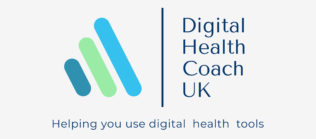Inside OpenAI Big Step Toward Smarter, Safer AI in Healthcare
Imagine this: You’re sitting in a doctor’s office, your parent is on one side, your teenager on the other, and you’re trying to keep everyone calm while figuring out what the doctor just said. Now imagine a smart assistant—not a person, but an AI—that actually helps you make sense of it all. That’s the kind of future OpenAI is exploring with HealthBench.
But what exactly is HealthBench? And why is it being called a game-changer for AI in healthcare? Whether you’re juggling work emails, school pick-ups, and caring for aging parents, this article breaks it down simply and clearly.
The Problem with Old AI Tests
Up until recently, most medical AI tools were tested like they were taking a school exam. Think multiple-choice questions or copying textbook answers. But real life isn’t a test. It’s messy. People talk in circles. Symptoms change. Context matters. And that’s where those old tests fell short.
For example, an AI might ace the U.S. Medical Licensing Exam (USMLE) but still fumble when a patient says something vague like, “I feel off.”
What Is HealthBench?
HealthBench is a new way to test AI models, developed by OpenAI (yes, the same company behind ChatGPT). It focuses on realistic medical conversations instead of dry test questions.
It’s like a roleplay scenario, where the AI plays the doctor or nurse, and someone else plays a patient, caregiver, or healthcare worker. Then, real physicians judge how well the AI responds.
Think of it like a dress rehearsal for medical AI.
Real Conversations, Real Challenges
HealthBench uses over 5,000 real-life style conversations, built with the help of 262 doctors from 60 countries. These aren’t one-liners either—they’re back-and-forth chats with nuance and emotion. Some deal with emergency care, others with sensitive topics like end-of-life decisions, or health issues in rural areas.
For every conversation, doctors created detailed checklists (called “rubrics”) to grade the AI. Did it understand the question? Did it give safe advice? Did it stay polite? Was it culturally aware?
And because AI doesn’t always get things right, there’s a special version called HealthBench Hard. These are the really tricky ones, where even top AI systems struggle.
How Good Is AI Right Now?
Here’s where things get interesting. Some of the earlier AI models, like GPT-3.5 Turbo, scored around 16%. Newer versions, like GPT-4o, improved to 32%, and a special model called o3 reached 60%. Even a lightweight model called GPT-4.1 nano did surprisingly well—at a fraction of the cost.
That means AI is learning fast. But it also means it still has a long way to go.
Wait, Who’s Watching the Watchers?
Great question. One concern people have is: who makes sure the AI is being graded fairly?
OpenAI uses other AI systems (like GPT-4.1) to help with scoring, but always based on rules designed by real doctors. It makes the process faster and more consistent, but also raises questions about fairness and bias. Some people worry that even well-meaning doctors might disagree with each other, or that the system might not reflect healthcare in low-resource areas.
But OpenAI has made HealthBench open source, so researchers and companies around the world can use it, improve it, and hold it accountable.
The Human Side of the Story
If you’re wondering what this all looked like from the inside, there are some smart folks sharing their views online.
- A blog post on Medium by Michael Riegler explores how the dataset was built, how the grading rubrics work, and why this kind of benchmark matters.
- Another article on itNEXT shows how one researcher found flaws in HealthBench using AI to double-check its own rules—kind of like a quality inspector using a robot helper.
- Podcasts like IBM’s “Mixture of Experts” talk about how HealthBench fits into the bigger picture of AI in healthcare.
So while there isn’t a Netflix documentary (yet!), there are definitely people pulling back the curtain.
Why Should You Care?
If you’re a parent, caregiver, or just someone trying to keep your family healthy, AI in healthcare will affect you. It could help schedule appointments, explain blood test results, or even spot health risks early.
But only if we build it right.
HealthBench is one way to make sure that happens. It’s not perfect, but it’s a solid step toward making sure AI in medicine is smart, respectful, and safe for everyone—not just tech experts or hospital CEOs.
So the next time someone says, “AI can’t replace doctors,” remember: It’s not trying to. It’s trying to help them help you.
Further Reading:
